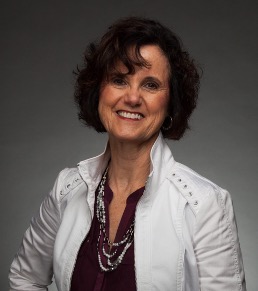In Remembrance of Dianne Ward

It is with profound grief the UNC Center for Health Promotion and Disease Prevention has learned of the untimely death of a dear colleague and researcher,
Dianne S. Ward.
Like a pebble cast into a pool, the concentric ripples of Dianne Ward’s career have influenced the lives of many people across UNC’s campus, the state of North Carolina, our nation, and the world. Her life’s work earned her a reputation that is both national and international in scope. Professionals in the field of public health knew and respected her for her pioneering research in childhood nutrition and physical activity. Colleagues who worked with her knew her to be a synergistic leader and a collaborator who was dependable, forward-thinking, and innovative. Students fortunate to have studied under her owe her a debt of gratitude for inspirational teaching and mentorship that was instrumental in launching their careers. But the people most impacted by Dianne’s visionary work are our nation’s most precious resource—our children. They would not recognize her name, be impressed by her weighty credentials, or even understand the contribution she made to their well-being, but because of her, their healthier diets and increased physical activity will shape their lives in positive ways for years to come.
Dianne’s career at UNC began in 1998 as a Professor in the Department of Nutrition and as an Associate Dean for Administration in the Gillings School of Global Public Health. Although Dianne’s administrative talents were valuable assets during a major renovation in the School of Public Health, in 2001 she found her research home at the UNC Center for Health Promotion and Disease Prevention (HPDP). Her association with HPDP proved a fruitful collaboration, giving rise to the Children’s Healthy Weight Research Group (CHWRG), a strong team of students, staff, and faculty focusing on creating, testing, and disseminating programs and policies that improve the health and well-being of children and their families through healthy nutrition and increased physical activity.

Dianne’s research portfolio illustrates her passion for promoting the health and welfare of young children, whether in childcare settings, schools, or communities. Her signature contribution to the field is the creation of the Nutrition and Physical Activity Self-Assessment for Child Care Program (NAPSACC), developed in partnership with the North Carolina Division of Public Health, Prevention Partners, and with funding from the Centers for Disease Control and Prevention. The success of this program has far exceeded its North Carolina roots–aspects of the program were even included in Michelle Obama’s Let’s Move Child Care Initiative. Over time, the program evolved into Go NAPSACC and by 2020, it was widely implemented in more than 20 states across the nation. In North Carolina alone, its reach extends to 900+ childcare programs, and positively impacted over 54,000 children. With its growing use across the United States, and its spread into Australia and Great Britain, Go NAPSACC’s growth was exponential. Dianne’s most current research efforts were focused on exploring how NAPSACC’s concepts could be used to benefit elderly populations.
Dianne’s commitment to student involvement in her research has covered the academic spectrum—from undergraduate to postdoctoral. She valued her students, made herself accessible to them, and creatively folded them into her team and her research work. Their resulting academic experience was a rich and rewarding real-world experience for them. Many students who worked with Dianne continued their professional collaborations with her long after they left UNC and established themselves in respected institutions of higher learning across the nation. It would be hard to overstate Dianne’s generosity as a teacher and mentor to the students she nurtured, but their “professional DNA” has most certainly been imprinted in a fruitful sense with Dianne’s influence.

Dianne’s generosity was not limited to her students. While meeting her professional obligations, she was not too busy to participate in Center-wide events, to inquire about her colleagues’ personal lives, to share book suggestions with a friend, to clean out the HPDP refrigerator, or to show her appreciation for a colleague’s contributions to her work. Dianne might have been a researcher with an international reputation, but she was a member of our HPDP family, and her unanticipated death deeply impacts all of us. Though we are united in our grief, let us celebrate Dianne’s remarkable life and give thanks that we were blessed to share in it.
Here, we remember Dianne’s legacy and invite you to do the same by leaving a comment below.
Leave a Reply
3 Responses to “In Remembrance of Dianne Ward”
Barbara Polhamus
It is with shock and sadness to learn of Dianne’s death. While at CDC, I had the honor of working with Dianne as she developed and implemented NAPSACC, and participated in national committees. Her ideas, energy, passion and knowledge had no bounds. This is a huge loss, especially, for the childcare community.
Christina van der Linden
Though I never knew Professor Ward, I would like to express my condolences. It seems she was an integral part of UNC, and her work is to be admired. May she rest in peace and may those left behind be comforted by their memories of her.
Kimberly West
I just learned of her death. She was my graduate advisor at USC and paramount in my career path. I am so sorry to hear of this loss.